




Welcome to the latest edition of Educatering magazine, where we talk about school lunches and explore the comforting and nourishing food that is soup.
In this issue, we shed light on the significance of providing well-balanced meals for students and the importance of expanding the school lunch programmes, particularly in the current economic climate where many families are struggling.

The notion of comfort often brings to mind warm, hearty meals that evoke a sense of coziness and familiarity. And what better example of comforting food than soup? From classic favourites like chicken noodle and tomato soup to international flavours like pho and minestrone, soup can warm up and feed students this winter.
The importance of providing nutritious meals to students cannot be overstated. A well-balanced lunch fuels their bodies and enhances their cognitive abilities, concentration, and overall well-being. Unfortunately, many schools struggle to meet the demands of delivering nutritious and appealing meals due to various challenges, including budget constraints and limited resources.
As always, Educatering magazine remains committed to promoting excellence in school catering.
Publisher Tania Walters

General Manager Kieran Mitchell
Editorial Director Sarah Mitchell
Managing Editor Caitlan Mitchell
Editorial Associates Annabel Maasdam, Sam Francks
Advertising Caroline Boe
Senior Designer Raymund Sarmiento




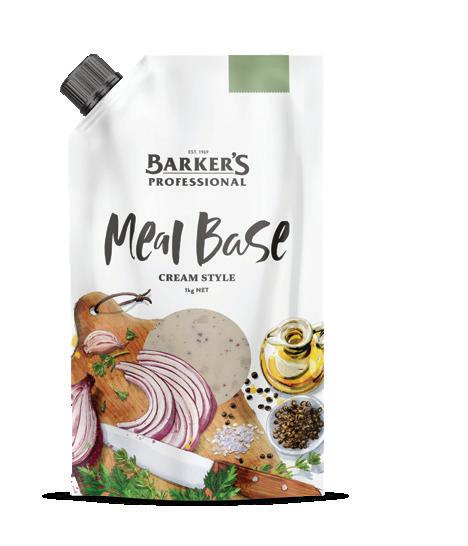


London Mayor Sadiq Khan has announced a £130 million initiative to provide free school meals to every primary school pupil in the city for the upcoming academic year.
The funding is expected to benefit more than 270,000 children in London and save families approximately £440 per child over the year. Charities and unions have welcomed the announcement but stressed the need for additional measures.

The scheme, financed by increased business rates income, will be implemented

in September and run during term-time throughout the academic year. Sadiq Khan, who received free school meals himself, emphasised the transformative impact such meals can have on children's lives.
Several London councils have already implemented their own universal primary school free meal programmes, and charities and teaching unions have supported them while urging broader government action.


The move has been seen as a lifeline for struggling families but has raised concerns about potential challenges in identifying eligibility for free school meals. H

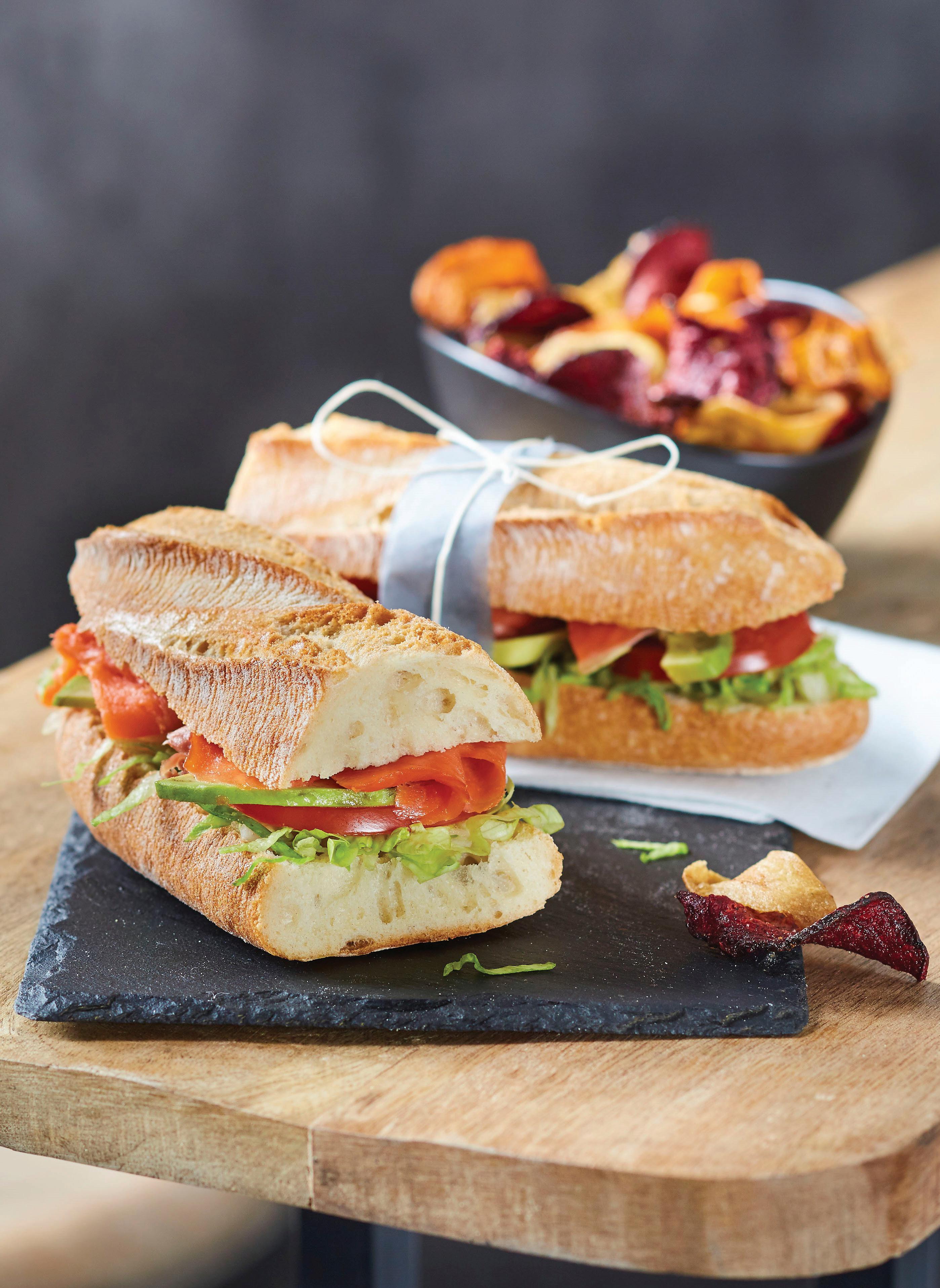

HCA presented its petition to double Ka Ora, Ka Ako Healthy School Lunches to Camilla Belich MP on the Parliament forecourt this month. Students from Ngati Toa School in Porirua joined HCA CoChair, Dr Lisa Te Morenga, in presenting the petition, which has been signed by over 100 schools, PPTA and NZEI unions and over 60 health and community organisations.
The Ka Ora, Ka Ako Healthy School Lunches Programme is in its fourth successful year, but it’s not reaching every child who needs it. Currently, only 25 percent of schools are eligible to opt into the programme, with many tamariki in need missing out, including those from middle-income whānau experiencing food insecurity.
A study of the programme showed 16 percent of students surveyed in middecile primary schools and 11.7 percent surveyed in high-decile schools had either run out of food at home or had gone to school hungry. While research from Talbot
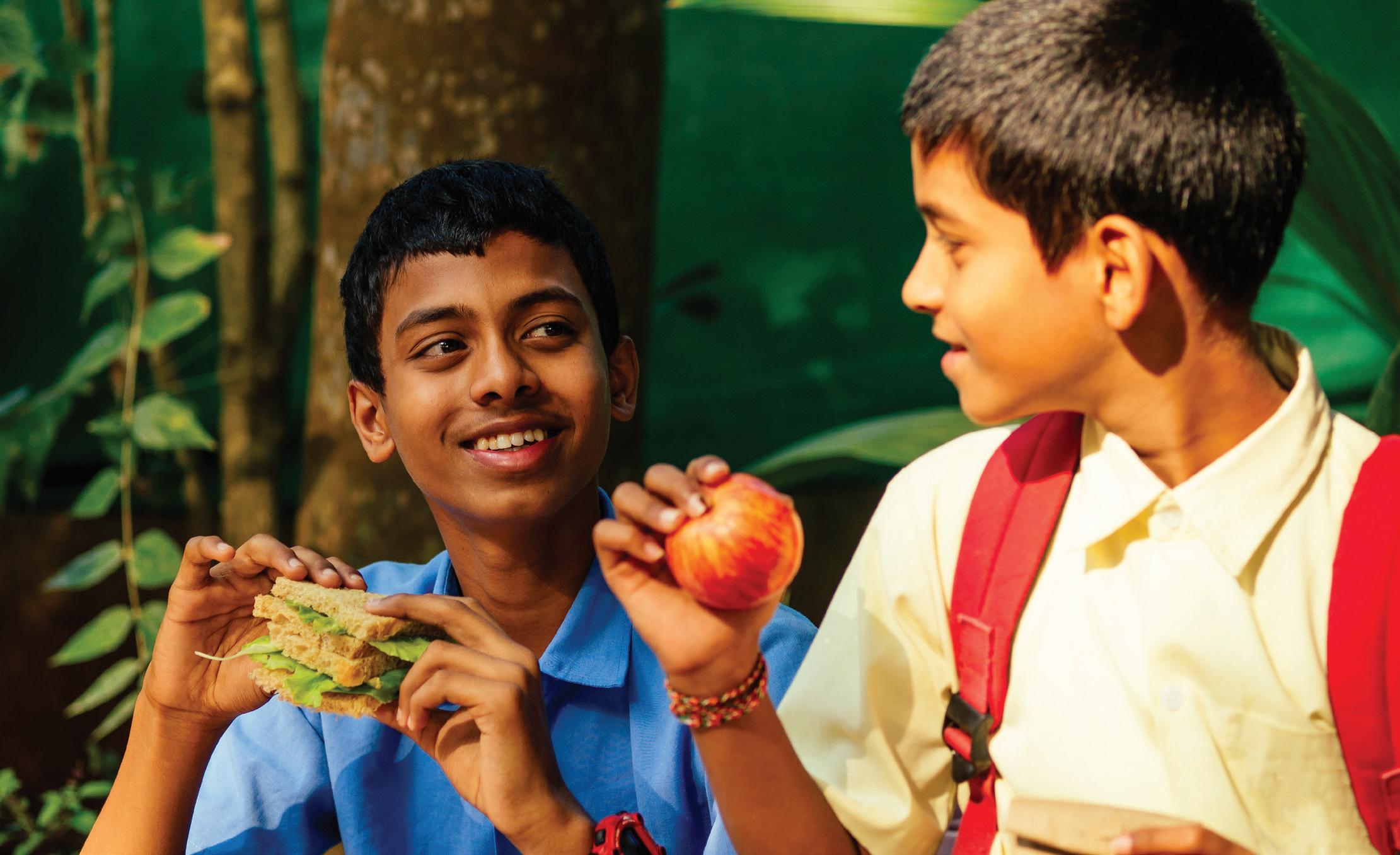
Mills shows 83 percent of people rate affordable healthy food as their top cost of living concern.
Solving food insecurity in Aotearoa isn’t a quick fix, but doubling this successful programme is something the Government can do right now to take the pressure off struggling whānau.
Dr Te Morenga said that with the election coming up, schools and whānau want to see a long-term commitment to Ka Ora, Ka Ako, no matter who wins.
“The cost-of-living crisis is pushing many whānau to a tipping point. Making sure tamariki get healthy, nutritious
food that supports their learning and development is really challenging right now for almost all whānau. And there are still so many schools who are ineligible for the programme but have students trying to learn on an empty stomach, and that’s unacceptable.”
“Expanding Ka Ora, Ka Ako will lift up whānau who are doing it tough at the moment,” she added.
“Including those from middle-income brackets who may never have experienced food insecurity before.”
Ngāti Toa School Principal Kathleen O’Hare says due to the Ka Ora, Ka Ako programme, she now has students coming to school who previously wouldn’t because of a lack of food.”There’s a stigma that used to come with not having any lunch. Now everyone is getting lunch, and those who haven’t previously been able to bring a lunch haven’t been standing out anymore.”
The principal of Sunnynook Primary School in Auckland, Virginia Montague, said that while her school is currently ineligible for Ka Ora, Ka Ako, there’s definitely a need for it.
“Last year, we ran a parent-funded programme that supplied hot daily lunches for students. It made a big difference in attendance, but due to increased costs, the providers weren’t able to keep it going. Having Ka Ora, Ka Ako in our school would make a world of difference,” said Montague. H


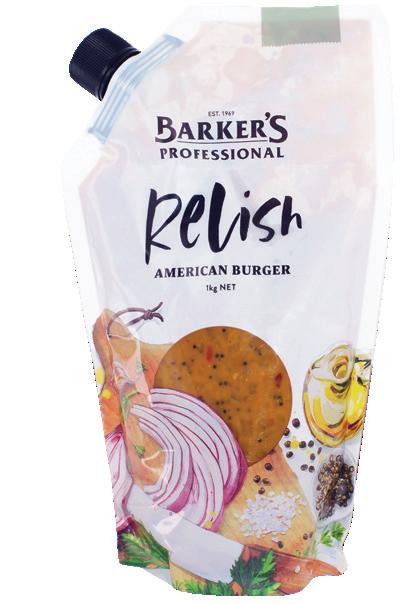
A recent report reveals the significant impact of school meals as a robust solution for vulnerable children amidst the global food crisis. With nearly 420 million children worldwide benefiting from school meals, governments worldwide recognise the cost-effectiveness and power of these programs.
According to the State of SchoolFeeding Worldwide report by the UN World Food Programme, school meals are a critical safety net for vulnerable children and households, especially when 345 million people face hunger, including 153 million children and young individuals.
The report emphasises the potential of the school meal industry, valued at nearly US$50 billion, in securing a better future for children worldwide. As evidence of progress, 75 governments have joined a coalition aiming to provide a daily nutritious meal to every child in school by 2030.

Notably, following disruptions caused by the COVID-19 pandemic, concerted efforts by governments to reinstate free lunch programs have led to a 30 million increase in the number of children receiving meals globally compared to 2020, encompassing around 41 percent of all schoolchildren.
Carmen Burbano, Head of School-Based Programs at the WFP, commended governments for prioritising the wellbeing of children and investing in their future. School meals play a crucial role in tackling the global food crisis, serving as the only meal many children receive in several countries where the WFP operates.
The report acknowledges the support provided by the government-led School Meals Coalition, established in 2020, to address pandemic-related challenges. However, it also highlights disparities between high-income and low-income countries, with 60 percent of schoolchildren in rich nations benefiting from meals compared to only 18 percent in low-income countries.
Although recovery has been swift in most countries, low-income nations still experience a 4 percent decline in the number of children receiving school meals compared to pre-COVID levels, particularly in Africa. Despite a 15 percent increase in domestic financing
for school meals in low-income countries since 2020, some national programs require further assistance.
The report calls for more significant support to help low-income countries establish sustainable funding mechanisms for school meal programs. Such efforts would require time-bound assistance from donor countries and increased domestic investment. The report highlights the advantages of school meal programmes, emphasising how free lunches attract more children to attend school, improving their learning outcomes and overall health.
Additionally, the combination of health and education offers children in low-income countries a pathway out of poverty and malnutrition.
Research demonstrates that school meal programmes can increase enrollment rates by nine percent and attendance by eight percent.
Furthermore, school feeding initiatives positively affect agriculture, education, health and nutrition, and social protection, resulting in a return on investment of US$9 for every US$1 spent. For every 100,000 children benefiting from a school meal programme, approximately 1,400 jobs are created, contributing to around 4 million jobs across 85 countries. H
Many schools are experiencing the advantages of outsourcing their school lunch programmes. Of the 974 schools currently enrolled in the Ka Ora, Ka Ako, Healthy School Lunches programme, 251 schools have decided to self-cater lunches. In comparison, the remaining 723 schools have opted to outsource.
However, between April 2022 and April 2023, a trend developed, with 168 schools deciding to bring their lunch options in-house, and more schools are expected to follow suit by the end of 2024. Among the positives cited by schools is that in-house catering means more meals are being eaten with less waste. In-house offers improved student participation in menu choices and the cost savings resulting from implementing proven operational processes.
Some schools, however, have been more than happy with outsourcing. After somewhat of a shaky start, with a few teething problems as providers and schools agreed on needs, schools outsourcing their lunch programme have reported that with improved communication, the variety of food offerings from providers has met student needs. There is now less waste, and students are enjoying the food provided.
Regardless of whether in-house or outsourcing, one
Introducing our delicious range of sweet treats, all packed full of hidden vege / fruit! Our delicious muffins, brownies, slices and cakes are the perfect option for the Ministry of Education’s Ka Ora, Ka Ako | Healthy School Lunches programme. They meet the ‘Amber’ nutrient criteria for the Sweet Baked Items category. We’ve done all the hard work for you, just thaw and serve!
For more information get in contact with your local Foodservice distributor or please contact your local Sales Representative.
E yummy@originalfoods.co.nz
W originalfoods.co.nz
P 0508 DONUTS
thing remains clear, good healthy lunches provide children with more than food in their tummies. It means kids can learn, gain shared experiences and sometimes

even know the joy of trying foods that they may have never experienced before. H

New Plymouth primary school, Marfell Community School, has led an example of a successful zero-waste lunch initiative, which has seen other schools willing to adopt the programme.

Students are a big part of making the programme work, with an onsite garden providing a number of ingredients such as silverbeet, carrots, beans and other fruit and vegetables. Students are also integral to ensuring that the school-wide composting programme runs smoothly.
Marfell Community School Principal, Janet Benson, said it is all about fuelling students to learn.
“We have many whanau who struggle to
provide quality meals, and we encourage risk-taking to try new foods. It's about mindfulness and appreciation for this initiative,” said Benson.
The initiative has been praised by Sustainable Taranaki and the New Plymouth District Council for closing the loop and completely cutting food waste out altogether.

The recent school lunch programme funded by the government, Ka Ora, Ka Ako, has benefitted Marfell Community School over the past two years. The zero waste element has been implemented by the school itself, and has been seen as a solution to the mounting issue of waste in the programme.
The original idea to compost the waste wasn’t successful, and left behind unpleasant odours and attracted an
infestation of rats. Returning to the drawing board saw input from Brittany Ryan of Sustainable Taranaki, and a model that works.
“It does take time to oversight and manage, and a lot of schools outsource the catering, and this has led to a lot of waste. There is a disconnect.”
In order for the programme to work, the carbon and nitrogen ratios needed to be right, as well as adding layers of soaked cardboard, hay, and grass clippings.
Another key factor was to separate the food waste, with both fruit and vegetable scraps composted and meat, dairy, and bread leftovers set aside for collection by a local pig farmer.
Each classroom in the school was allocated a bucket to collect food scraps for the programme, catching the leftovers from morning tea, with lunches arriving on reusable trays.
“We have had a high participation rate, with some students having seconds and thirds. This leads to more focussed learning, and because we self-cater, we can reflect tamariki favourites in our menu.”

The model used by Marfell students has recently won an award from the New Plymouth District Council for its Zero Waste effect, but has also been eyed up by surrounding schools in the area to adopt. H

Is there anything more comforting than a steaming bowl of soup on a chilly winter's day? For school lunchtime, soup brings with it a host of benefits that go beyond its delicious taste. Whether it’s a flavorful tomato bisque or a hearty chowder, soup has become the perfect food choice for winter. Let's explore five compelling reasons why soup should be a top pick for school lunch menus.
Nothing beats the comforting warmth of a bowl of soup during the cold winter months. Hot soup deserves its reputation as a winter comfort food.
Soup is satisfying and offers soothing relief for those battling colds or sore throats.
A bowl of soup is easy to prepare and offers a nutritious and convenient lunchtime solution.
Soup offers endless variety. From
classic minestrone to creamy chowders, comforting chicken noodles to flavourful minestrone, the world of soups knows no bounds.
Soup pairs exceptionally well with various dishes.
Including winter warmers like soup for school lunch menus brings comfort and convenience to the winter season. Whether it’s a savoury chicken veggie soup or a flavourful corn chowder, kids enjoy the delicious taste and reap the numerous benefits that soup brings.

Soups are such a healthy, wholesome, and nutritious meal. The ability to play with flavours, textures and seasonal vegetables makes soups an easy addition to school lunch menus.
Soups are a great kid-friendly option, and being able to hide vegetables and herbs in the soup can be just the thing to get kids to try something new.
Remember, a soup recipe is a great way to mimic flavours and tastes that are already popular. So, if chicken curry has been popular, for example, then create a soup with spice and curried vegetables.
Hearty Vegetable Soup
Curried Chicken & Vege Soup
Sweet Potato & Carrot Soup
Spicy Pumpkin Soup
Chicken Noodle Soup



Research conducted last year showed nearly two-thirds of Kiwi shoppers were unwilling to pay a premium for fruit and vegetables grown, picked, packed and delivered with sustainable practices.
The United Fresh Sustainability Guidelines would set a blueprint for how the entire fresh value chain can work towards contributing to the United Nation’s Sustainable Development Goals (SDGs). The SDGs are a set of seventeen key objectives that, if adopted worldwide, are expected to lead to a safer, more prosperous future for people and the planet.

For the country’s six billion NZD horticulture industry, keen to develop sustainable measures to protect the future of the business, that reluctance poses a significant problem.

Dr Hans Maurer, Chair of the United Fresh Technical Advisory Group, stated that the balance between increasing sustainable practices and maintaining affordability is tricky. “We’re walking a tightrope at the moment. Shoppers are struggling with inflation, budgets are tight, but making vital changes to how we do business is just so important,” shared Dr Maurer.
Dr Maurer elaborated that United Fresh was developing a set of Sustainability Guidelines for the entire fresh produce value chain. However, the changes that the industry would want to make based on these guidelines would require investment.
“We are responsible for doing our best to meet the UN’s SDGs. The fresh produce industry in Aotearoa takes those responsibilities very seriously, and major work is going on to improve and strengthen sustainable practices.” Convincing shoppers that sustainability measures are essential was part of the challenge. Dr Maurer explained that following the pandemic, shoppers’ priorities have shifted. Health and well-being have become more critical, and fresh fruit and vegetables have become more important due to the product’s high nutrient levels. Convenience is also a key driver for shoppers. However, consumers have increasingly become more environmentally conscious as they have become more knowledgeable about the impact of their actions towards climate change.
In addition to sustainability expenses, external pressures such as rising fuel and fertiliser costs, labour shortages, transport gridlock, and adverse weather conditions have seen fresh produce prices increase.
“The weather events we’ve been through in the last few months have brought home just how much our climate is changing and how urgently we need to act to bring sustainable, low-emission practices into the industry wherever possible.”
Dr Maurer stated that he hoped shoppers would support the industry’s actions. However, he acknowledged that there was a role for government to consider when it came to the value fresh fruit and vegetables represented for the entire population, which Dr Maurer stated should lead to more government support for the growing community to make these positive changes affordable. H

Need help with supplying quality lunches?
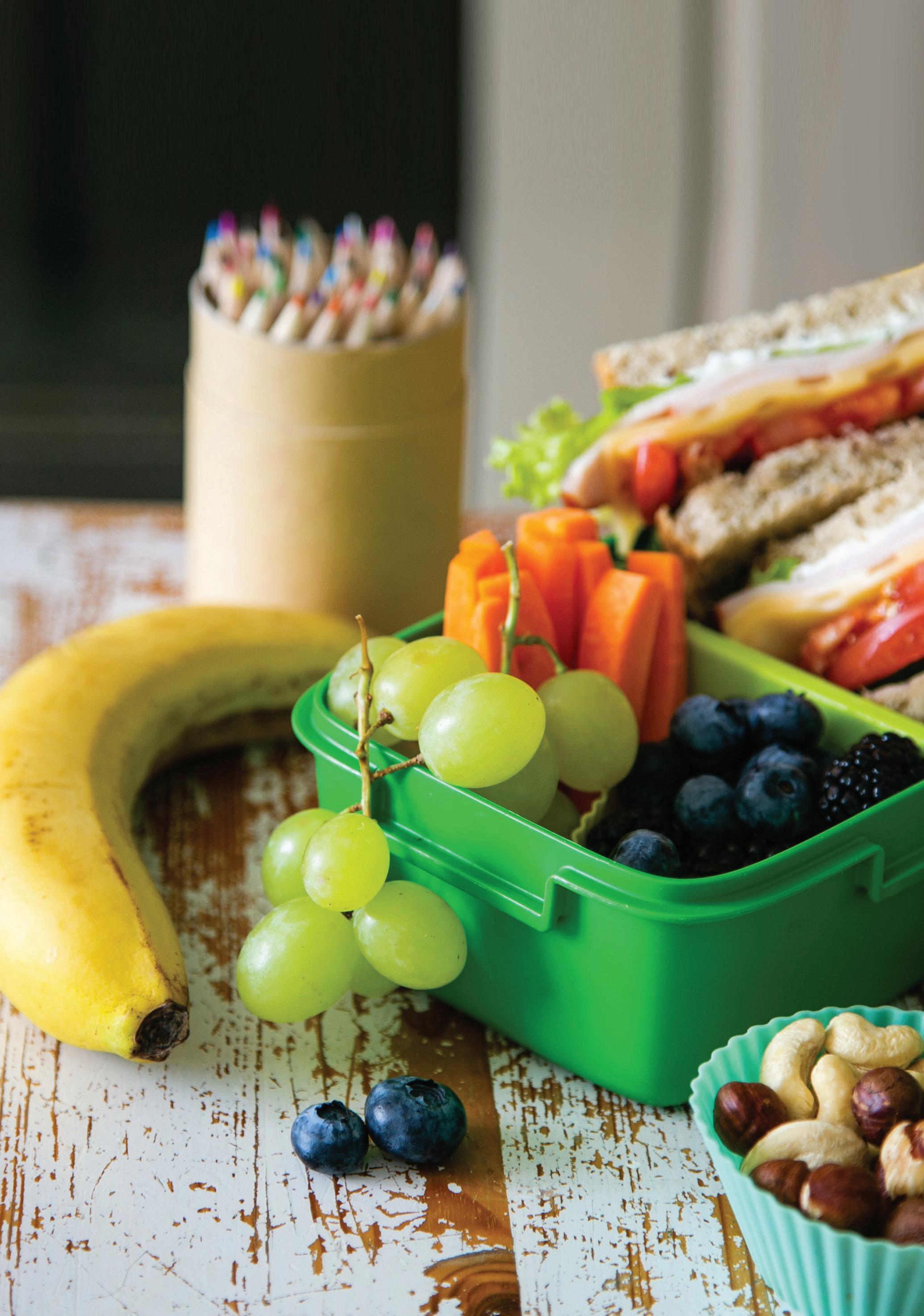
We have everything you need, so put Gilmours on the menu today.
gilmours.co.nz
Small steps can make a big difference, especially when tackling plastic pollution. Plastic Free July, a global social movement, empowers millions worldwide to reduce plastic waste. By participating in Plastic Free July, school principals can lead their communities in creating cleaner streets, oceans, and beautiful environments. Join the movement this July and make a real impact on your school’s sustainability efforts.
The Power of Participation: Plastic Free July is not just a challenge; it’s a movement that brings together over 140 million people taking a stand against single-use plastics. By refusing to use one plastic item this July, you become part of a global community working towards ending plastic pollution. Your actions also send a powerful message to businesses and governments that they, too, must take responsibility for reducing plastic waste.
Measurable Impact: Every small action adds up. Plastic Free July participants typically reduce 18 kg of household waste and recycling each year, equivalent to approximately 38 times the weight of waste collected by the world’s greatest clean-up efforts last year. By preventing plastic waste
from entering ecosystems, we protect our oceans and wildlife from the harmful effects of microplastics. Working together, we can eliminate waste and create a healthier planet for future generations.
Choosing Sustainable Alternatives: Reducing plastic waste can be as simple as making conscious choices. A popular switch people make during Plastic Free July is to refuse plastic packaging at school. This small change has significant environmental benefits, from reducing consumption and production to minimising human health impacts associated with plastic exposure.
Driving Systemic Change: By participating in Plastic Free July, you join a global network of individuals and communities committed to sustainability. When you choose reusable containers over single-use ones, you inspire others to do the same, shaping social norms and fostering a culture of environmental responsibility.
Make a Difference: The next two years are critical in amplifying public concern for plastic pollution. The United Nations will forge an international legally-binding agreement in response to the plastic crisis.
Plastic Free July allows school principals, staff, and their communities actively
participate in finding solutions.

Visit plasticfreejuly.org for more information and resources to help you and your school community go plastic-free this July.

By joining the Plastic Free July movement, schools have the power to impact their school communities significantly, reducing plastic waste, protecting our ecosystems, and inspiring positive change. Take small steps this July and be part of the solution to plastic pollution. Let's create a plastic-free future for our schools and our planet. H



In our increasingly hectic and urbanised world, connecting with nature is vital for our wellbeing. The healing power of nature has been well-documented, and incorporating natural elements into our working environments can profoundly impact our health and happiness. Recognising this need, Lundia, a renowned interior furniture and storage solutions provider, has developed a range of shelving options that combine the beauty of natural timber with a biophilic design ethos, creating comfortable and healthier spaces.
Nature has an innate appeal to our senses and instinctively draws us in. However, we often find ourselves surrounded by cold, sterile environments daily, sitting at impersonal metal desks and uncomfortable chairs with little connection to the natural world. Lundia seeks to change that by bringing the essence of nature indoors.

Imagine the last time you were immersed in nature, feeling the sun's warmth on your skin, breathing in the fragrance of flowers, and listening to the soothing sound of a gentle breeze rustling through the leaves. Lundia aims to recreate that sense of tranquillity and vitality in your surroundings.
Studies have consistently shown that exposure to nature has numerous psychological and physiological benefits. When we are in natural environments,
our cognitive functions improve, our stress levels decrease, and our creativity is enhanced. Lundia understands the importance of these benefits and has designed its shelving options with the goal of creating spaces that promote wellbeing and productivity.

At the heart of Lundia's philosophy is a commitment to ecological values and sustainable practices. The company uses plantation-grown FSC-certified timber from New Zealand pine forests, ensuring its furniture is durable and environmentally friendly. Lundia's shelving options are built to last, with some of their original units from the 1960s still in use today.
The design specifications have remained unchanged, allowing for the seamless integration of new shelves with existing pieces. This focus on longevity and adaptability reflects Lundia's
dedication to reducing waste and minimising its environmental footprint.
Lundia's manufacturing process is designed to eliminate wastage at every stage. Offcuts are utilised purposefully, with the innovative Eco Box shelving system being a prime example of their sustainable approach. Even the manufacturing byproducts are recycled or repurposed, from mobile shelving being transformed into new units to wood shavings being collected for pet litter. By aiming to recycle 100 percent of its waste, Lundia is at the forefront of sustainable furniture production.
Regarding design, Lundia draws inspiration from nature's perfect functionality and aesthetics. Their shelving options feature natural shapes, colours, and materials that evoke a sense of visual serenity and harmony. Integrating these nature-inspired elements into your space creates an environment that energises and uplifts, fostering a deep connection with the natural world.
Whether you are furnishing offices or classrooms, Lundia's customisable modular elements and expert consultation ensure that your shelving solution is tailored to your specific needs. Lundia's commitment to sustainability, combined with its focus on creating comfortable and productive environments, makes them a trusted choice for those seeking a natureinspired approach to interior design. H

Lundia’s NEW Learning range has been several years in design development. The range is modular and flexible allowing multiple classroom solutions that assist teachers to facilitate all types of learning from Makers Spaces and Mobile TV, Whiteboard and Acoustic Walls to Softscapes and stackable or staged seating.

Our fixed and loose furniture also complements our Natural FSC certified Pine Mobile and Classic Shelving. Inspired by Biophilic Design principals with a new pallet of colours taken from Nature we are sure this will bring a fresh approach to furnishing the learning environments throughout Aotearoa.






lundia.co.nz
info@lundia.co.nz
0800 860 460

In our constant pursuit of sustainable solutions, one area that often gets overlooked is school furniture. While commonly seen in classrooms worldwide, laminated desktops pose a significant challenge regarding repair and end-of-life disposal. However, an Aucklandbased startup company, Critical Design, has recently embarked on a project to transform old desk frames with innovative desktops made from compressed recycled plastic. We had the opportunity to speak with Rui Peng, the CEO of Critical Design, to learn more about this groundbreaking initiative.
Laminated desktops have long been a common fixture in classrooms worldwide. However, the issue arises when these desktops become damaged or broken, often resulting in a complicated and costly repair. Recognising this challenge, Critical Design, an Auckland-based startup company, has embarked on an innovative project to transform old desk frames with its revolutionary Cleanstone panels built from compressed recycled plastic.
Under the leadership of CEO Rui Peng, Critical Design aims to provide a sustainable alternative to traditional laminated desktops. The Cleanstone panels offer unparalleled durability and longevity thanks to their moisture-free composition. Unlike laminated desktops, which can be challenging to repair, the Cleanstone






panels can be easily sanded and polished when marked or damaged, ensuring a costeffective and efficient solution.

What sets Cleanstone panels apart is their versatility in design and customisation. Critical Design offers a wide range of colour options, allowing each panel to be tailored to the client's preference. Furthermore, the panels are crafted from various recycled plastics, such as bubble wrap, plastic bags, piping, and netting, offering diverse design possibilities that help combat the carbon emissions associated with plastic waste.
Environmental sustainability is at the heart of Critical Design's mission. The company aims to make a lasting positive change by utilising sustainable technology with minimal environmental impact. The Cleanstone panels are just one aspect


of their commitment. Critical design ships these panels worldwide, extending their influence beyond the local market. Moreover, the company has established a system to buy back panels in endof-life condition, ensuring they can be repurposed into new products rather than ending up in landfills.
In addition to its environmental focus, Critical Design provides a 20-year lifetime warranty for the Cleanstone panels, underscoring its confidence in its durability. This commitment to quality and longevity reassures schools and educational institutions to invest in a sustainable and reliable solution for their desks.

CEO Rui Peng explains that Critical Design's vision extends beyond desk refurbishment. Their ultimate ambition
is to eliminate the dumping of plastics in landfills, making way for a future where sustainability is the norm. By leading the way with their Cleanstone panels and their dedication to ongoing improvements, Critical Design is shaping the future of sustainable design, benefitting both people and the planet.






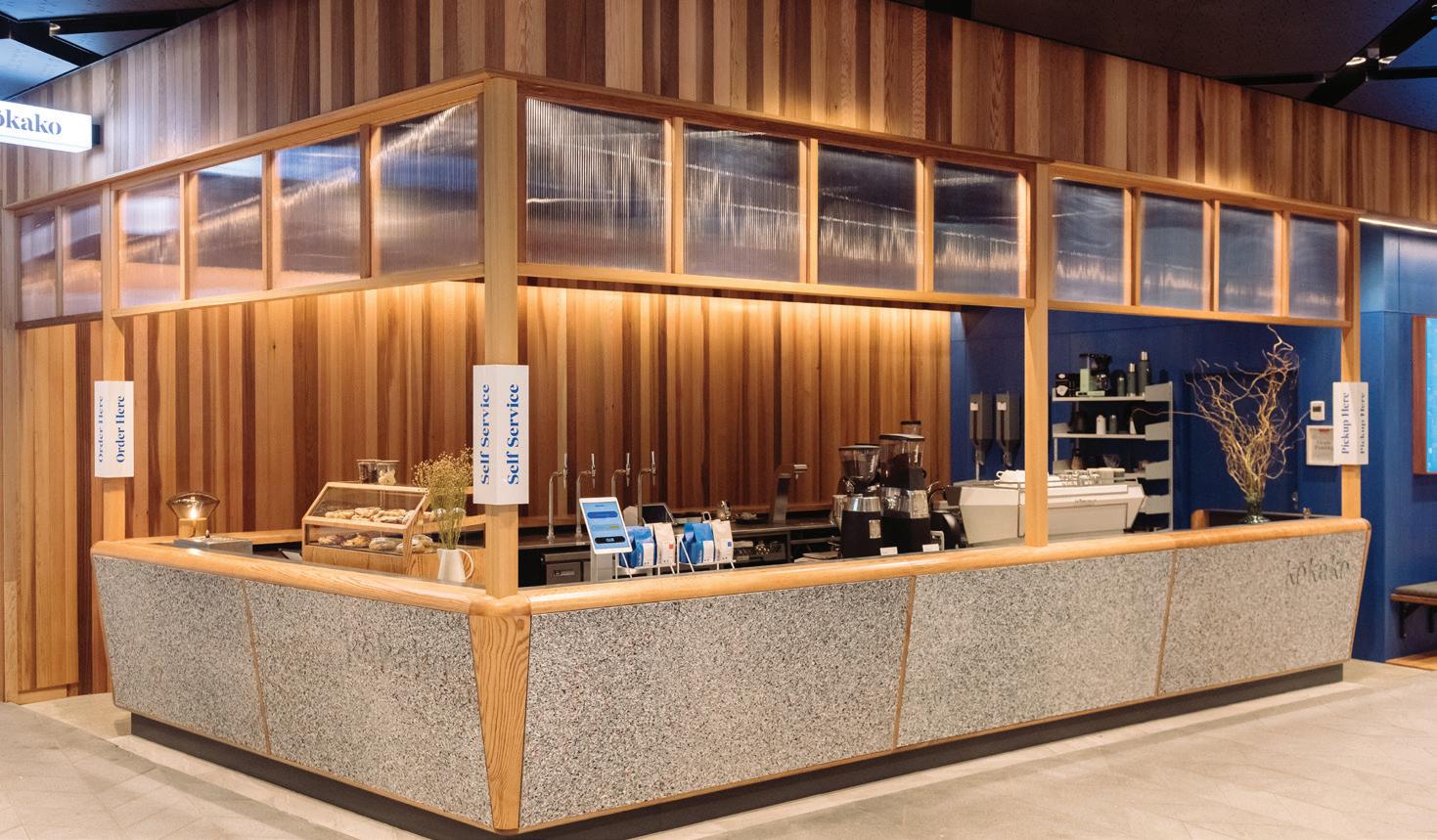
The Cleanstone panels by Critical Design represent a significant step forward in school desk sustainability. With their durability, customisable design options, and unwavering commitment to the environment, these panels offer a compelling solution for schools seeking eco-friendly alternatives.
By choosing Cleanstone panels, schools can contribute to a greener future while providing students with a sustainable and inspiring learning environment. H
